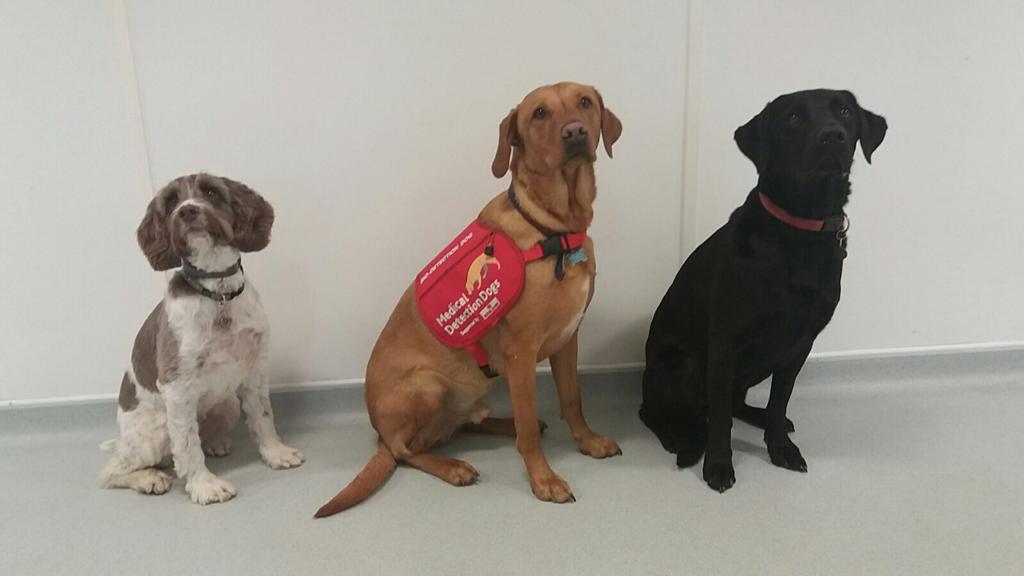Image Credit: Image courtesy of Medical Detection Dogs
A groundbreaking project at Imperial College London is exploring the use of medical detection dogs to identify harmful bacteria in humans, particularly focusing on cystic fibrosis (CF) care. Jodie, a golden Labrador, is one of the specially trained dogs participating in this initiative, which aims to revolutionize the detection of infections like Pseudomonas aeruginosa.
Cystic fibrosis is a genetic disorder characterized by thick, sticky mucus accumulation in the lungs, leading to severe respiratory issues and increased susceptibility to bacterial infections. While advancements in treatment have improved the quality of life for CF patients, the medications can complicate the collection of mucus samples traditionally used to diagnose lung infections. As a result, doctors are seeking alternative methods for monitoring bacterial presence in these patients.
The project builds on prior research where dogs were trained to detect Pseudomonas in controlled laboratory environments. With new funding from LifeArc and the Cystic Fibrosis Trust, the team aims to expand this research by training dogs to identify bacteria directly from patients’ clothing, skin, or urine, eliminating the need for invasive lab tests.
This innovative approach not only seeks to enhance the care for cystic fibrosis patients but also holds broader implications for addressing antimicrobial resistance. Pseudomonas aeruginosa is known for its antibiotic resistance, which poses significant risks to public health. By accurately identifying the presence of such bacteria, healthcare providers can administer targeted treatments, thereby mitigating the risk of increasing antibiotic resistance.
The initiative reflects a growing recognition of the potential roles that trained dogs can play in medical diagnostics. While traditional laboratory methods can be costly and uncomfortable, the use of detection dogs presents a gentler and potentially more effective alternative. As this research progresses, it may pave the way for a new era in healthcare, where man’s best friend becomes an invaluable ally in the fight against infections and antimicrobial resistance.
Check out the original article here: Source link



